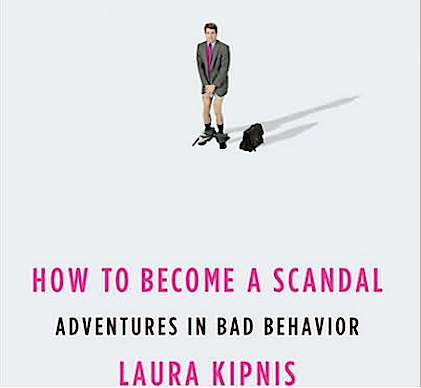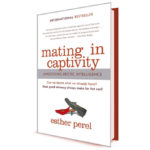Laura Kipnis is the kind of writer we’d like to be if we weren’t so fond of making poop jokes and cheesy ’80s references (but, hey, there’s still time to grow up, right?). She writes smart books about topics close to our hearts, like love, sex, pornography, and — most recently — scandal. Her new book is called How to Become a Scandal: Adventures in Bad Behavior and it will make you feel okay — even intellectual — about rehashing all the gory details regarding Eliot Spitzer’s mistress or the astronaut in diapers. You get to revel in scandal for two hundred pages and still respect yourself in the morning.
Kipnis is interested less in why people like Spitzer and Clinton take their pants down on the job and more in why they possibly think they’ll get away with it — the massive amount of self-denial required to convince yourself that you, unlike all the others, won’t get busted, that you somehow won’t ruin your marriage/career/life. It has to do with the mystery of the self, she says. (See? We told you you’d be able to respect yourself in the morning.) Here’s an excerpt:
Recall the amorous governor [Spitzer], breaking laws he himself had helped put on the books. If there were a Nobel Prize for denial, Stockholm would soon be calling. The most popular diagnosis of the governor’s condition was “hubris,” shorthand for the proposition that the governor knew exactly what he was doing, had gauged the political consequences and risks, effected a rational computation that he could get away with the transgression, and simply miscalculated. But let’s consider a competing explanation, which proposes that one part of consciousness can be completely inaccessible to another part and this is basically the way the psyche is structured.

















